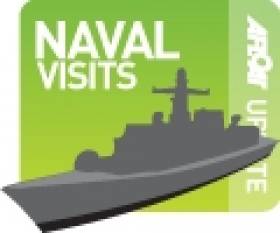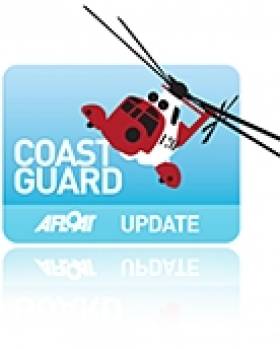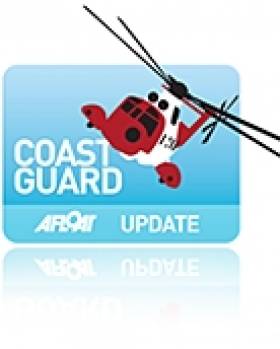Displaying items by tag: French
#dlharbour –Three French naval training ships will pay a courtesy visit to Dun Laoghaire Harbour in May. The Harbour Master of Dun Laoghaire Harbour Company, Simon Coate, accepted the invitation from the French Ministry of Defence for the ships to visit.
The 'Lion', 'Leopard' and 'Eglantine' will be in Dun Laoghaire from Friday 1st - Monday 4th May as part of a training excursion, the aim of which is to teach French navy students how to sail a ship. Coastal and ocean navigation and manoeuvre teaching will be taught during the training. Each ship is fully equipped with lecture and training rooms as well as specific teaching equipment. During the training excursions, the ships are also employed by the French Ministry of Defence for the watch and guard of French maritime approaches, and all ships have the ability to release counter-oil products, used for counter pollution missions.
Speaking in advance of the arrival of the naval ships, CEO of the Dun Laoghaire Harbour Company, Gerry Dunne, said: "We're delighted to welcome the three French naval training ships to Dun Laoghaire. This year will be an extremely busy one for the Harbour, with over 20 cruise calls taking place this summer. The visit of the naval ships offers a nice start to this season and they should act as an interesting sight for local ship enthusiasts. We're also looking forward to welcoming the French naval students to the town."
French Fishermen Rescued
At 9.45am Belfast Coastguard received the report of a man with abdominal pains from the fishing vessel 'Saint Gothard' south east of Strangford Lough. The skipper had spoken to a doctor who had advised that the 50 year old man should be taken to hospital as soon as possible.
It quickly became apparent that the crew did not speak English and so the French Coastguard from Maritime Rescue Coordination Centre in Gris Nez agreed to translate. Using three-way communications, which included satellite telephones and coastguard equipment, Belfast Coastguard, the crew of the Irish helicopter and the Coastguard at Gris Nez managed to communicate with the vessel, explaining how to set-up a high-line transfer and the best direction and speed of the vessel for the winchman. The sick crew man was successfully airlifted, by the Irish Coastguard helicopter in Gale force 8 winds and taken to hospital in Newry, Northern Ireland.
Belfast Coastguard, Watch Manager Steve Carson said:
"I'd like to thank our colleagues in Ireland and France for their help with this rescue, which ensured that a sick fisherman now has the medical attention he needs. "
Irish Vessels Asked to Keep Lookout for Missing Yacht
Ships off Ireland's south and west coasts have been asked by the French coastguard to keep a lookout for a yachtsman who has gone missing on a transatlantic voyage.
In a report that has echoes of missing yacht The Golden Eagle - which sailed into Kerry after an Atlantic crossing from Bermuda many days after schedule - RTÉ News says that the 12-metre yacht La Galatee left French Guiana on 5 August sailing for St Malo in France, but the French coastguard has lost contact with the vessel.
No air and sea searches are being considered at this time, but Irish Coast Guard stations are broadcasting alerts and requests for sightings of the yacht.































































